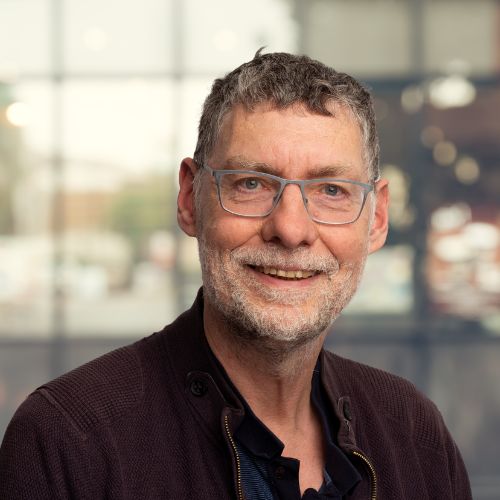
Gerrit Muller

Ik houd me bezig met onderzoek en educatie op het gebied van systeemarchitectuur, in nauwe samenwerking met de industrie.
Leerstoel
Systems engineering (University of South-Eastern Norway).
Onderzoeksgebied
Binnen het brede vakgebied van systeemengineering hebben met name systeemarchitectuur en conceptuele modellering mijn interesse. Bij systeemarchitectuur is het belangrijk dat je kijkt naar de context, bijvoorbeeld wat klanten nodig hebben, waar de oplossing wordt gebruikt, en die kennis gebruikt als richtlijn bij de ontwikkeling van een mogelijke oplossing. Het uiteindelijke doel is om oplossingen te ontwikkelen die geschikt zijn waarvoor ze bedoeld zijn.
Een belangrijke uitdaging bij systeemarchitectuur is het omgaan met complexe problemen in complexe contexten, bij het creëren van oplossingen voor complexe organisaties. Daarbij krijgen we te maken met onzekere factoren, onbekende factoren ('unknowns') of factoren die op meerdere manieren uitgelegd kunnen worden en snel veranderen.
Alles bij elkaar is het een uitdaging om rekening te houden met al deze factoren. Het belangrijkste instrument dat systeemarchitecten daarvoor gebruiken, zijn conceptuele modellen. Conceptuele modellen zijn vereenvoudigde weergaven van de werkelijkheid waarin cruciale verbanden, functies en gedrag worden vastgelegd. Conceptuele modellen bestaan uit een combinatie van schema's, formules, grafieken, cijfers en andere visualisaties.
Goede systeemarchitecten lijken dergelijke modellen moeiteloos te creëren en gebruiken. Hoe kunnen we jongere mensen helpen dit vermogen te ontwikkelen? Architectuurontwerp is een van de kernmethodes die de missie van ESI mogelijk maken: toonaangevende methodes ontwikkelen die de Nederlandse hightech-sector helpen om te gaan met de constant toenemende complexiteit van hun producten om de positie van wereldwijd marktleider te behouden en te versterken.
Belangrijkste publicaties
- Cloutier, R., Muller, G.J., Verma, D., Nilchiani, R., Hole, E., and Bone, M., “The Concept of Reference Architectures” Journal of Systems Engineering, Volume 13, Issue 1, Pages: 14-27, 2010
- Phaal, R., and Muller, G.J., “An architectural framework for roadmapping: Towards visual strategy”, Technological Forecasting and Social Change, Vol. 76, No. 1, p39-49, 2009
- Muller, G.J., “Systems Architecting: A Business Perspective”, book, CRC Press, 2011
Eindhoven - High Tech Campus 25
High Tech Campus 25
5656 AE Eindhoven
Postadres
Postbus 6235
5600 HE Eindhoven